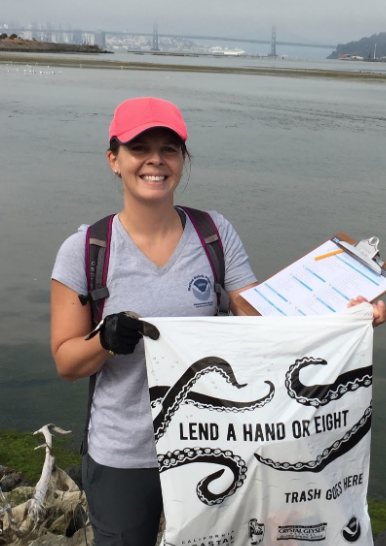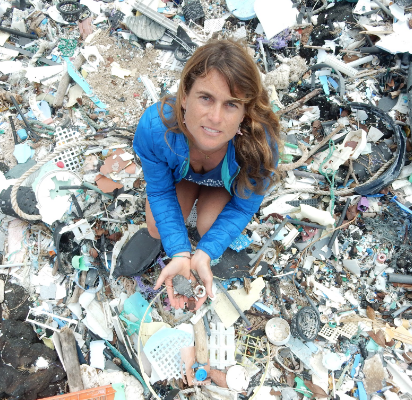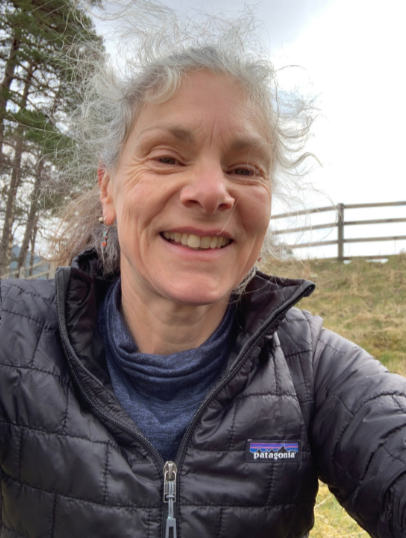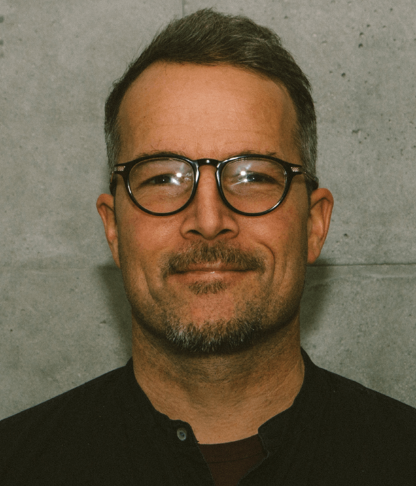OVERVIEW
This November, California-based sustainable textiles consultancy Materevolve and the National Oceanic and Atmospheric Administration (NOAA) Marine Debris Program are partnering to bring an engaging workshop entitled the “California Microfiber Workshop: Science, Innovation & Connection”. This invitation-only workshop, centered around the complexities of microfiber pollution and textile solutions, will feature presentations and facilitated breakout sessions with California leaders in marine science, policy, and sustainable textile innovation. Hosts Krystle Moody Wood (Founder & Principal Consultant at Materevolve) and Carolynn Box (Ocean Conservation Consultant, formerly of 5 Gyres) invite you to join in, help build community across multiple sectors, and align on key opportunities for California to lead in science and innovation as it relates to ‘microfiber pollution’.
BACKGROUND
Last October, the San Francisco Bay Microplastics Project (a 3 year study led by Carolynn Box at the 5 Gyres and in partnership with the San Francisco Estuary Institute) identified microfibers as one of the main plastic pollution contaminants in California. These sources of microfiber pollution point to shedding from clothing, furniture, carpet, and other textiles, entering the environment through stormwater, wastewater and air pathways.
Around the same time, the California chapter of the American Association of Textile Colorists and Chemists (AATCC) hosted a three day sustainable textile conference (spearheaded by Krystle Moody Wood) entitled: “Resilient Textile Systems: Through the Lens of Soil and Sea”. This conference ignited important discussions around research, testing, materials innovation and developing a common language between sectors.
Through collaborative efforts, Carolynn and Krystle built initial connections between industry, science and policy stakeholders. Both projects started important discussions on microfiber research efforts and textile innovation with scientists and policy makers from the ocean plastic pollution movement. This workshop will continue that momentum and provide California leaders with an opportunity to accelerate collaboration around solutions.
WORKSHOP GOALS
(1) Inspire more engagement and collaboration from textile professionals and textile experts and other stakeholders, building off of the efforts from existing projects;
(2) Identify and build on existing microfiber efforts(research, innovation, action, etc) in California;
(3) Identify new ideas and messaging that can drive solutions to microfiber pollution;
(4) Collate key learnings and suggested priorities for a publicly available Final Report provided by NOAA's Marine Debris Program.
TARGET ATTENDEES
Target participants include textile industry experts, textile company representatives, microplastics scientists, ocean policy makers, representatives from universities and environmental groups, and other interested stakeholders. Please email krystle@materevolve.com if you are interested in joining us.
AGENDA
9:00AM - 9:45AM (45’): SETTING THE STAGE: THE CALIFORNIA MICROFIBER LANDSCAPE
Microplastic pollution continues to gain global attention as a threat to the natural environment, including impacts to human health. Recent research has identified microfibers (though definition varies between stakeholders) as a dominant microplastic particle type. Solutions, ranging from innovation to policy, have been established. California already has many leaders from government to industry actively involved in the movement and is in a position to lead on science and solutions. Curators of this workshop, Carolynn Box and Krystle Moody Wood will provide an overview of recent efforts and stakeholder meetings that brought us to this meeting. Leaders from the NOAA Marine Debris Program, State Water Resources Control Board and Ocean Protection Council will provide updates and next steps on recent California policy and programs related to microfibers.
SPEAKERS
Krystle Moody Wood
| Workshop Co-Host | M
aterevolve
Krystle Moody Wood is the founder and principal consultant of Materevolve, LLC., a company driven to lead the evolution of our materials world. Materevolve's mission is to develop and scale innovative regenerative textile systems through the lens of soil, sea and circularity by designing nature-forward experiential learning programs, providing technical consulting to leaders in the textile sector, and fostering trail-blazing collaborations between science, industry, government, and non-profit. Krystle holds a BS in Textile Science from the University of California at Davis.
Carolynn Box
| Workshop Co-Host |
Ocean Conservation Consultant & Plastic Pollution Expert
Carolynn Box has almost 20 years of ocean conservation experience, with the last 10 years dedicated to plastic pollution. Carolynn has traveled more than 25,000 miles researching microplastics on Ocean Expeditions with 5 Gyres and recently completed the San Francisco Bay Microplastics Project where she led the process to identify policy solutions, along with being part of the project development, design, fieldwork, and analysis. Carolynn is also co-founder of Goods Holding Company, a plastic free lifestyle company, and Co-founder of California Reuse Collective, a network of companies focused on building reuse systems in the Bay Area. www.carolynnbox.com
Sherry Lippiatt, PhD. |
California Regional Coordinator |
NOAA Marine Debris Program
Dr. Sherry Lippiatt has served as the California Regional Coordinator for the National Oceanic and Atmospheric Administration (NOAA) Marine Debris Program since 2012. In this role, Sherry works with stakeholders to identify regional marine debris priorities and provides expertise and oversight for Marine Debris Program-funded prevention, removal, and research projects in the state. She is the Federal lead for the California Ocean Litter Prevention Strategy and launched the MDP’s flagship citizen science program, the Marine Debris Monitoring and Assessment Project. Sherry earned her Ph.D. in Ocean Sciences from the University of California Santa Cruz.
Scott Coffin, PhD. |
Research Scientist |
State Water Resources Control Board
Dr. Scott Coffin is an environmental toxicologist who has studied plastic pollution since 2014, and is leading California's efforts to mitigate potential impacts from microplastics in drinking water at the State Water Resources Control Board.
Holly Wyer |
Marine Pollution Program Manager |
Ocean Protection Council
Holly Wyer joined the OPC in March 2016, and her work focuses on plastic pollution and microplastics. She is the state lead on the California Ocean Litter Prevention Strategy and is currently working with partners to develop California’s Statewide Microplastics Strategy. Holly started working on coastal and ocean management for the State in 2012 with the State Lands Commission, where her work focused on emerging uses of the ocean. She earned a master’s in Environmental Science & Management from the Bren School at UC Santa Barbara, and she earned a B.A. from Western Washington University in 2008. Holly enjoys traveling, backpacking, and exploring the outdoors.
9:45AM - 10:35AM (50’): IDENTIFYING CURRENT MICROFIBER SCIENCE: UPSTREAM TO OCEAN
Microfiber research within the marine science and textile industries has increased, providing needed data to design new solutions. Experts from leading California marine and environmental science institutions will describe each research entity's focus on microfibers, covering research and related efforts to identify solutions, such as the Microfiber Action Roadmap developed in 2017 and the outcomes of the San Francisco Bay Microplastics Project in 2019. We will also hear from experts on textile testing efforts, updates on the materials flow analysis, as well as highlight current collaborative industry/research groups leading research, testing and solutions.
SPEAKERS
Sarah-Jeanne Royer, PhD. |
Research Scientist |
Hawaii Pacific University, Center for Marine Debris Research
Dr Sarah-Jeanne Royer is an oceanographer and a specialist on plastic degradation in the oceanic environment. She is currently working on this problem at Hawai’i Pacific University on the Island of Oahu in collaboration with Scripps Institution of Oceanography at the University of California, San Diego. Her research focuses on common polymers including synthetic microfibers and their degradation in the environment. She also investigates the different sources and sinks that connect plastic to the ocean such as the impact of the fishing industry with respect to the total mass balance of plastic discarded in the ocean. Her goal is to pursue plastic research to understand better the degradation and fragmentation processes of plastic and fate in the ocean.
Roland Geyer, PhD. |
Professor |
UCSB Bren School of Environmental Science & Management
Roland Geyer is Professor at UCSB’s Bren School of Environmental Science and Management. Prior to joining the Bren School he held research positions in Germany, France, and the UK. Since 2000 he has worked with a wide range of governmental organizations, trade associations, and companies on environmental sustainability issues. Roland has won multiple awards for his work, such as the International Statistic of the Year, and been featured widely in the media, like CBS 60 Minutes, CBS Sunday Morning, and PBS News Hour. He has a graduate degree in physics and a PhD in engineering. Learn more about Roland and his work on www.rolandgeyer.com.
Heather Elliot |
Global Sustainability Committee Chair |
American Association of Textile Colorists & Chemistry (AATCC)
Heather Elliot has worked in the apparel industry for about 15 years. She currently is a Testing Engineer for apparel materials. She is the chair of the AATCC’s Global Sustainability Committee and is working with the committee on a global standardized test method for fiber release from textiles. She also is a member of the ASTM Textile Committee. Her reason for working in the textile field is to help make the industry more sustainable. She lives in the Pacific Northwest where she enjoys hiking, camping, and talking to trees.
Diana Lin, PhD. |
Senior Scientist |
San Francisco Estuary Institute
Diana Lin is a Senior Scientist at the San Francisco Institute, and manages the San Francisco Regional Monitoring Program ’s Microplastic Workgroup. Prior to joining SFEI, Dr. Lin was a science and policy fellow in the California State Legislature through the California Council on Science and Technology Fellowship Program. She received a Ph.D. degree in Environmental Engineering and Science from Stanford University.
10:35AM - 10:50AM (15’): HONORING TIME FOR NOURISHMENT & TRANSITION
Participants are encouraged to take a 10 minute break for nourishment (ie. food, drink, bathroom, stretching, etc)
10:50AM - 11:40AM (50’) : INNOVATING FOR A BLUE MATERIAL WORLD
This session will begin with an overview of research conducted on the efficacy of consumer solutions and provide an update of a first-of-its-kind regionally focused study looking at the potential impacts of community home laundry filtration. To build a shared understanding, our next speaker will provide an overview of textile systems, where chemistry is used, current sustainable chemicals management strategy employed by textile industry, and the path forward for green chemistry. To address potential solutions like textile recycling and the development of new material solutions, we will have an expert present on new and innovative approaches to reducing fiber fragment release, implementing bio waste as a feedstock for new materials and the current landscape for implementing textile recycling. The session will wrap with an overview of regional efforts to build circular systems around natural materials for both fibers and dyes here on the west coast. Each speaker will provide detail on feasibility, speed to scale, cost barriers, and how these solutions can support California specific efforts.
SPEAKERS
Lisa Erdle |
PhD Candidate |
Rochman Lab -University of Toronto
Lisa is a PhD Candidate and Researcher at the University of Toronto. Her work focuses on the sources, fate and effects of microfibers in the environment. Lisa collaborates with the Ministry of the Environment, Conservation and Parks as well as Environment and Climate Change Canada to better understand how microfibers – including natural and synthetic – impact fish and invertebrates through physical and chemical processes. Her most recent projects have been (1) identifying types of microfibers from environmental samples and (2) testing mitigation strategies for washing machines to see how well they divert microfibers from a wastewater treatment plant in Ontario.
Amanda Cattermole |
Cattermole Consulting
Amanda Cattermole leads Cattermole Consulting, a consultancy that helps organisations develop chemical management, circular and sustainability strategies that result in safer products made in cleaner supply chains. Through her work, education and experience, she has significant expertise about hazardous chemicals and how they are used in textile and leather manufacturing. She works with a variety of stakeholders including NGO’s, trade associations, governments, fortune 500 companies, small mission-based brands, foundations and consultancies. Amanda serves on the board of the Berkeley Center for Green Chemistry at the University of California Berkeley. She has a BSc. degree in Colour Chemistry from Leeds University and a MS degree in Textile Chemistry from UC Davis.
Isaac Nichelsen |
CEO |
Circular Systems
Born into the back-to-the-land movement of the early 1970s, Isaac possesses an inherent love of nature and the authentic spirit of an activist. A visionary and innovative approach to design and manufacture has allowed Isaac to help instigate and propel global trends in style and textile sustainability for more than two decades. In 2007, California Apparel News dubbed Nichelson the “Eco-Johnny Appleseed” due to his growing reputation for being a very passionate and committed early-stage promoter of sustainable textiles and fashion. As a creative entrepreneur with nearly 25 years of apparel industry experience, Isaac has built and led brands, and prior to that worked hands-on as a designer, marketer, and salesman. This has provided Isaac a truly comprehensive knowledge base, one that extends from the origins of fiber to yarn and textile formation, to design and manufacture--- all the way through the branding, marketing, and global distribution fashion products.
Rebecca Burgess |
Executive Director |
Fibershed
Rebecca Burgess is the Executive Director of Fibershed, and Chair of the Board for Carbon Cycle Institute. She has over a decade of experience writing and implementing a hands-on curriculum that focuses on the intersection of restoration ecology and fiber systems. She has taught at Westminster College, Harvard University, and has created workshops for a range of NGOs and corporations. She is the author of the best-selling book Harvesting Color, a bioregional look into the natural dye traditions of North America, and Fibershed: Growing a Movement of Farmers, Fashion Activists, and Makers for a New Textile Economy released in 2019. She has built an extensive network of farmers and artisans within the region’s Northern California Fibershed to pilot the regenerative fiber systems model at the community scale.
11:40AM - 11:45AM (5’): TRANSITION TO SMALL GROUP BREAKOUTS
11:45AM - 12:45PM (60’): CONNECTING & BRAINSTORMING FOR CALIFORNIA’S FUTURE
Participants will be distributed into preassigned breakout group sessions of seven to ten individuals, with a balanced representation of each stakeholder group. Facilitators will introduce themselves and set the environment for a lively and thought-provoking discussion. Key questions and guidelines for the virtual workspace will be provided in advance to allow for a maximum of information capture. Throughout the thoughtfully facilitated session, participants will all have an opportunity to share key resources, ask questions, as well as provide ideas and opportunities for California stakeholders to lead in messaging, closing research gaps and implementing solutions.
Example Questions
-What key resources or solutions to microfiber pollution are we missing?
-How can we break down knowledge and language barriers between sectors and consumers?
-What can California do today? What are the priorities in research, connection and innovation?
12:45PM - 1:00PM : COMBINING & DEFINING THE PATH FORWARD
After a quick transition, all workshop participants will re-join together to hear an overview from each group facilitator of key learnings and ideas gathered from breakout sessions. Hosts Krystle Moody Wood and Carolynn Box will close out the day with a summary of themes heard from the workshop, identify near term opportunities for California stakeholders, offer ways to stay connected, and what to expect next.
The “California Microfiber Workshop: Science, Innovation & Connection” is supported by a grant from the National Marine Sanctuary Foundation (NMSF) and the National Oceanic and Atmospheric Administration (NOAA) Marine Debris Program.













